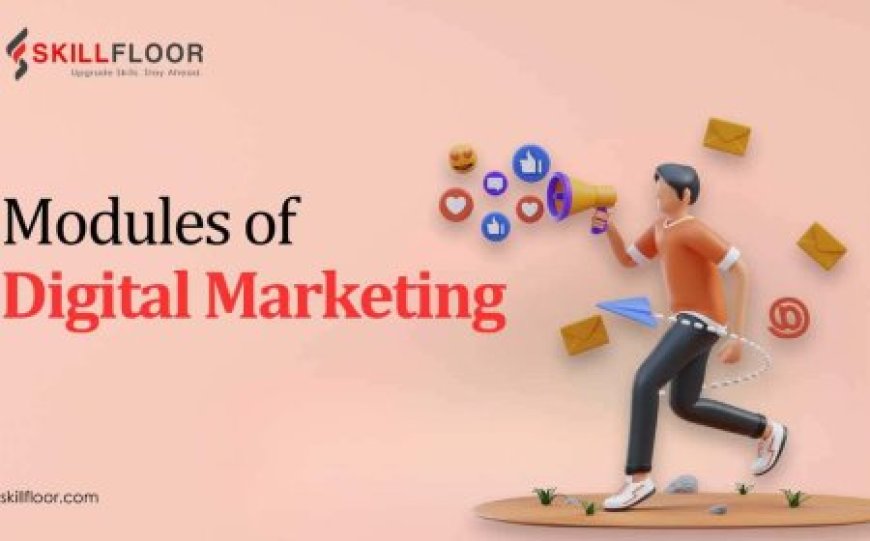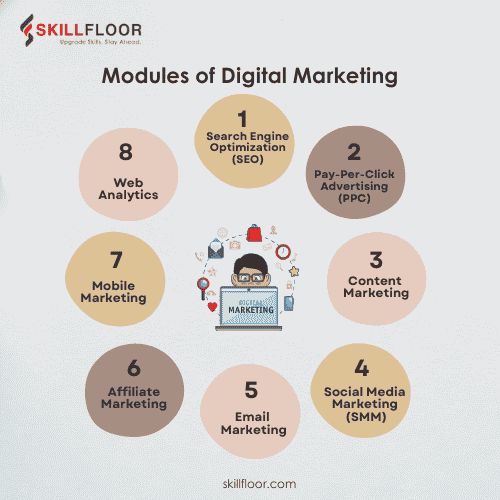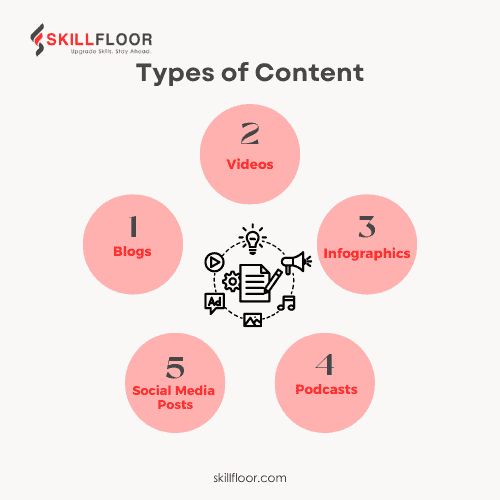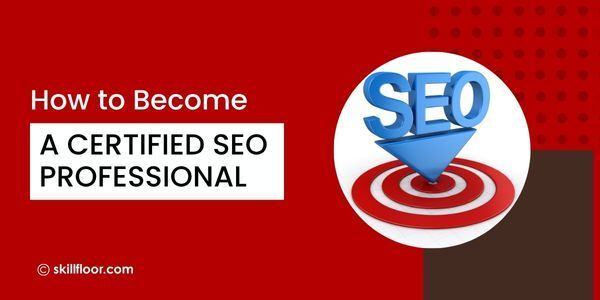Exploring the Core Modules of Digital Marketing
Explore the essential modules of digital marketing, including SEO, SEM, social media, email marketing, and analytics. Learn key strategies for building a successful online presence.

Understanding the wide range of tactics used by companies to engage with their audience via digital channels is a necessary part of Exploring the Core Modules of Digital Marketing. This approach includes Pay-Per-Click (PPC) advertising, in which companies pay for each click on an advertisement to guarantee instant traffic, and Search Engine Optimization (SEO), which increases website presence in search results. While content marketing concentrates on producing quality content to draw in and hold on to a certain audience, social media marketing makes use of sites like Facebook and Instagram to promote products and engage customers. While affiliate marketing pays external affiliates to drive traffic and purchases, email marketing entails delivering promotional messages directly to prospective consumers. Users of mobile devices are the target audience for mobile marketing, and Web analytics provide crucial information on how successful these efforts are. These modules of digital marketing work together to play a critical role in successfully implementing a strategy.

Search Engine Optimization (SEO)
A digital marketing technique that helps a website rank higher in search engine results is search engine optimization, or SEO. Without spending money on advertisements, this raises the website's visibility and attracts more visitors. In order to meet search engine requirements, SEO entails optimizing the content and structure of the website while using pertinent keywords to draw in the intended audience. It also entails optimizing the website for speed and ease of use. SEO is a continuous process for any digital marketing plan since it requires regular modifications to stay up to speed with changes in search engine regulations.
Key components: On-page SEO, Off-page SEO, and Technical SEO
-
On-page SEO: Focuses on the content on your website. It includes using relevant keywords and making sure your headings and descriptions are well-written.
-
Off-page SEO: Involves activities outside your website to improve its ranking, like getting links from other trustworthy sites.
-
Technical SEO: Deals with improving the technical setup of your website, such as making it faster, easier to navigate on mobile devices, and more secure.
Tools and strategies for effective SEO
|
SEO Tools |
Purpose |
SEO Strategies |
Purpose |
|
Google Analytics |
Tracks website traffic and user behavior |
Content Optimization |
Enhances relevance and quality of website content |
|
SEMrush |
Conducts keyword research and competitive analysis |
Keyword Research |
Identifies keywords to target for maximum traffic |
|
Moz |
Provides SEO insights and audits of site performance |
Building Backlinks |
Improves site authority through external links |
|
Ahrefs |
Analyzes backlinks and evaluates keyword rankings |
Mobile Optimization |
Ensures website is optimized for mobile users |
|
Google Search Console |
Monitors site's performance in Google search results |
Improving User Experience |
Focuses on making the site user-friendly and engaging |
Content Marketing
Content marketing is a strategy where businesses create and share different types of media like articles, videos, and infographics, to attract and engage an audience. This helps businesses build relationships with potential customers, establish expertise, and promote brand awareness.
Purpose of Content Marketing:
The main goal is to provide valuable information to your audience, which helps build trust and connection. This trust can lead to more customers choosing your brand when they are ready to purchase.

Types of Content:
-
Blogs: Articles on websites that offer insights or information.
-
Videos: Visual content that can educate or entertain.
-
Infographics: Visual charts and graphs that explain data easily.
-
Podcasts: Audio programs where you can listen to discussions or learn new things.
-
Social Media Posts: Updates and posts on platforms like Facebook and Instagram to interact directly with users.
Social Media Marketing (SMM)
Using social media sites like Facebook, Instagram, Twitter, and LinkedIn to advertise a good or service is known as social media marketing (SMM). The primary objectives are to raise brand awareness, draw in new clients, and interact with current ones. Companies communicate with their audience by sharing content, such as posts, videos, and advertisements. Businesses can immediately reach a huge number of people with this kind of marketing, get feedback, and tailor their campaigns based on user response. Through social media analytics, SMM may also increase website traffic and assist in obtaining important information about the preferences and habits of a company's customers.
Pay-Per-Click Advertising (PPC)
pay-per-click (PPC) advertising, marketers pay a fee each time a user clicks on one of their ads. The main purpose of it is to increase website traffic, as opposed to trying to get those visits naturally.
Setting PPC Campaigns in Location:
-
Define Goals: Decide what you want from your PPC campaign, like more website visits, leads, or sales.
-
Choose Platforms: Pick where to place your ads, such as Google Ads or Facebook.
-
Keyword Research: Find keywords that potential customers might use, which will trigger your ads to show up.
-
Create Ads: Write clear ad texts and create visuals if needed.
-
Set a Budget: Decide how much you want to spend daily or for the entire campaign.
Managing PPC campaigns:
-
Monitor: Keep track of how your ads are performing in terms of clicks and conversions.
-
Optimize: Adjust your ads to perform better, like changing the text or targeting different keywords.
-
Analyze: Use data to see what's working and what's not. You might test different versions of your ads to find the best one.
-
Manage Budget: Change your spending based on how well your ads are doing to make sure you're using your budget effectively.
Email Marketing
Email marketing is a valuable tool for reaching customers directly through their email. It's important because it allows you to send personalized messages directly to people who are interested in your business.
Benefits of Email Marketing:
Cost-effective: It's cheaper than many other types of advertising, allowing you to reach a lot of people without spending a lot of money.
High ROI: Email marketing can generate a high return on investment, making it a smart choice for boosting sales.
Measurable: You can easily track how many people open and respond to your emails, which helps you understand what works.
Targeted: You can send emails to specific groups of people who are most likely to be interested in what you're offering.
Automatable: Emails can be set to send automatically based on actions people take, like signing up for a newsletter or buying a product, which saves time and effort.
Affiliate marketing
It is a type of marketing where businesses pay external partners, known as affiliates, to promote their products or services. In return, these affiliates earn a commission for each sale or action completed through their referral.
How Affiliate Marketing Works:
-
Affiliates Sign Up: Individuals or companies interested in promoting products sign up for an affiliate program offered by a business.
-
Receive a Unique Link: Once approved, the affiliate receives a unique link that tracks all traffic and sales they generate for the business.
-
Promotion: Affiliates use various methods like blogging, social media, or email marketing to promote the link and encourage their audience to click on it and make a purchase.
-
Earn Commissions: When someone clicks the affiliate's link and makes a purchase, the affiliate earns a commission from the sale. The business only pays if the affiliate successfully drives a sale, making it a cost-effective marketing strategy.
Mobile Marketing
Mobile marketing is becoming more important as more people use their smartphones for browsing and shopping. Here are some key tactics:
-
Apps: Businesses create mobile apps to offer a better user experience and provide notifications and deals directly on users’ phones.
-
SMS: Companies send texts to customers with offers or updates. This method is direct and often gets quick responses.
-
Mobile-Optimized Websites: It’s crucial for websites to work well on mobile devices. This means they should look good on small screens and load quickly.
Analytics and Data
Analytics is vital in digital marketing because it helps businesses understand how their marketing efforts are performing and what their customers are like.
Role of Analytics in Digital Marketing:
-
Tracking Performance: Analytics tools help track how many people see ads, visit websites, and buy products, showing which marketing strategies work.
-
Understanding Customers: Analytics provide information about who is interested in a product, like their age and where they are, helping to target marketing better.
-
Improving Campaigns: By looking at the data, businesses can figure out what needs to be improved in their marketing, such as changing ads or website designs.
-
Allocating Budgets: With data on what’s effective, businesses can spend their marketing budget more wisely.
Mastering various digital marketing modules is crucial because it allows businesses to effectively reach and engage with their audience online. Each module, from SEO and PPC to content marketing and social media, serves a specific purpose and complements the others. Understanding how to use these tools can help a business attract more visitors, convert them into customers, and build lasting relationships. In an increasingly digital world, being proficient in these areas can significantly enhance a business's ability to compete and succeed.






























































